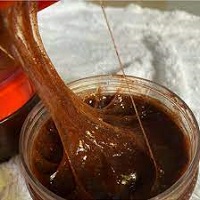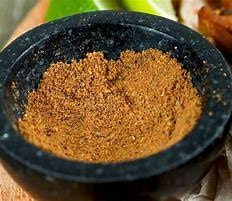Goron Tula in Women Health Benefits
Goron Tula in Women Health Benefits. Please Watch:
Goron Tula’s advantages for the female reproductive system
You might choose to chew on a few fruits because it’s a well-known powerful s*xual enhancer. Among the possible advantages for women are:
Table of Contents
Goron Tula in Women: Fight genital microbes
The vagina’s acidity is out of equilibrium due to a bacterial infection. Goron Tula kills wading bacteria and cleanses the vagina. It encourages normal vaginal flower growth as well as ph balance.
Goron Tula for Women ~ Increases the cervical mucus
Certain infertile women may also experience a dry vagina. It hinders the semen’s ability to properly penetrate and flow during s*xual activity. Because the mucus in the cervix is egg-white in color, sperm can swim through it and survive before continuing to the uterus and fallopian tube.
Goron Tula in Women ~ Improves ovulation
Gordon tula is high in magnesium, which helps to enhance ovulation. Stress is exacerbated by magnesium shortage, and stress inhibits women’s ovulation.
Goron Tula for Women ~ Menstrual Regularity
Gordon tula may contribute to the maintenance of regular menstrual cycles. The process of conception is slowed down by irregular periods.

What is goron tula?
The Goron Tula, sometimes called the Snot Apple or African Chewing Gum, is a fruit native to western Africa, notably Nigeria, that resembles a Kola nut.
The fruit, which is sweet and chewy, is typically eaten raw on its own or powdered and used in recipes for sauces, jams, jellies, and other sweetened beverages.
However, in Hausa, goron tula, sometimes called tree hibiscus, Azanza, or snot apple, is a plant that grows in northern Nigeria. The fruit is also known as “African Chewing Gum” fruit because of its chewy and sweet texture.
Goran Tula Nigeria
In Nigeria, the gorun Tula fruit is extensively grown in the Michika region of Adamawa State and the Tula Kaltungo Local Government of Gombe State. Botanically, it’s called azanza garckeana.
The medicinal fruit gorontula (Azanza garckeana), sometimes referred to as silky kola, possesses a variety of pharmacological properties, including antibacterial, antifungal, antihyperglycemic, antimalarial, antioxidant, and iron absorption.
The health advantages of gorontula include lowering blood pressure, lowering blood sugar, facilitating digestion, boosting immunity, and treating asthma.
It usually improves bowel movements. The fruit is frequently added to soups and porridges as a culinary ingredient.
Gorontula (Snot Apple) Fruit
The versatile edible fruit goron tula is well-liked in West African nations due to its numerous health advantages.
The fruit is also known as “African Chewing Gum” because of its sweet, chewy nut component.
The fruit is also referred to as snot apple, Azanza garckeana, and tree hibiscus. It won’t surprise you when you hear about the numerous advantages of consuming this fruit—many of its devotees refer to it as the “miracle fruit.”
Common names of goron Tula
- Azanza Garckeana (botanical name)
- Snot Apple (English)
- African chewing gum
- Miracle Fruit
- Morojwa (Botswana)
- Thespesia garckeana (Binomial name)
- Nkole (Sri Lanka)
- Silky Kola
Where did Goron Tula originate from?
It is generally accepted that goron tula originated with the Tula people of Gombe State, Nigeria, as it was consumed for many years as a customary snack by the Tula Community in that state.
The Tula people, who inhabit the highlands and have rich, distinctive agricultural land, are the source of Goron Tula’s name.
They believed that the Goron Tula tree had some therapeutic benefits, such as lowering high blood pressure and enhancing both men’s and women’s intimate desire and performance.
However, this tree’s most amazing quality is that it will not produce fruit if planted anywhere else.
Gorun Tula Prize in Nigeria/Ghana
Gorun Tula can be gotten online or from any local market, especially from Northern Nigeria
The fruit was prized for its health-promoting qualities by the people and was utilized medicinally in the past.
Many different conditions have been treated with tula, including headaches, poor mood performance, and many others.
The fruit’s medicinal properties have been found, but until recently, nothing was known about them.
People from all around Africa, as well as visitors from Europe and Asia, are unexpectedly demanding these days for Goron Tula.
What is goron tula used for?
Goron Tula is mostly used to enhance s*xual well-being and health. Traditionally used for generations to cure fevers, sore throats, coughs, and colds.
Ladies and gentlemen, Goron Tula is the solution if your hormones are out of control and you want to rediscover your rhythm.
It’s delicious and will help fix all those annoying issues that can make a lady feel less than her best.
It will also balance women’s hormones, regulate the menstrual cycle, and help your body produce more testosterone naturally.
Asthma and other general bronchial conditions are known to respond well to Goron Tula.
How do you eat goron tula fruit?
For most people, attempting to swallow a whole Goron Tula fruit is one of the most difficult things to accomplish.
This fruit is large and it is not easily swallowed. Goron Tula can be eaten uncooked; it’s safe for eating across all ages.
You can eat or chew the raw flesh of the fruit after extracting the seed. Once you chew the soft part of the Goron Tula fruit, you can then remove the seed that is also found within.
Most people try to chew this as they attempt to swallow it whole. Better still, scrape the outside of the Goron Tula, and boil it for half an hour. When it’s cooked, peel off the outside and you can eat the inside.
Goron Tula powder
You can still get the health advantages of Goron Tula in powder form if you prefer not to consume the raw fruit. You can add freshly ground powdered form as a supplement or ingredient to your diet.
- Men can drink warm water that has been mixed with powdered Goron Tula.
- Ladies can consume the powder right away by mixing it with cold water.
- Goron Tula powder dissolves and turns into a drinking mixture when added to either warm or cold water.
In addition to stimulating high cravings for s*xual activity, using goron tula powder acts as a vegina cleanser and helps to keep the vegina clean, thereby eliminating unpleasant odors.
How to use Goron Tula powder
Goron Tula powder should be taken one to three tablespoons per day, and added to warm water as needed until the desired effects are observed.
Goron Tula powder can be mixed with cereal, smoothies, yogurt, fruit juice, tea, and custard milk. But taking it by you with water is far more beneficial.
Goron Tula syrup
The pure extract of gorontula fruit, known as gorontula juice, has no addictive properties and can be used to make your innermost area warm, juicy, enticing, dripping, delicious, and intoxicating. Keep his recollections vivid and compulsive.
How to Extract Goron Tula Syrup/Juice
There are two (2) different methods of extracting goron tula syrup. Both methods are explained below:
- First method: You should first clean the dry seed, and then consume it whole while sucking on the juice, and then discard the shaft.
- The second option: soak a few seeds in boiling water, strain them when cooled, and consume the juice or blend them into smoothies.
Goron Tula syrup benefits~ what is Gorontula syrup used for?
- Make your puss slick, slimy, and wet,
- Improves your vegina.
- Raises libido drive,
- Improves sex pleasure,
- Promotes conception, and
- Stops veginal dryness

Goron Tula Male Benefits
You are undoubtedly asking yourself this question, particularly if you are new to this fruit.
Although the fruit has several health benefits, its capacity to enhance a person’s s*xual activity is its most well-known attribute.
You should be aware of the fruit’s numerous other health advantages in addition to its s*xual perks. They include:
- Enhances Digestion: The fruits’ flesh and peel are both packed with fiber. The digestive tract is kept moving by the fiber. As a result, the bowel movements remain gentle and regular. Together, these elements help to purify the body.
- Avert liver issues: By lowering inflammation and shielding the cells, the antioxidants in this fruit aid in preventing damage to the liver.
- Stops cancer: Although consuming an abundance of fruits can significantly lower your risk of developing cancer, the Goron Tula offers more protection due to its higher nutritious content.
- Goron Tula Lowers elevated blood pressure: Vitamins, minerals, and plant chemicals abound in the fruit. The chemicals lower blood pressure and other heart disease risk factors.
- Boosts the immune system: It has cells rich in vitamin C, which stimulates the generation of white blood cells. White blood cells circulate throughout the bloodstream to combat bacteria, viruses, and other foreign invaders. Thus, your blood should include a greater number of white blood cells.
Other health benefits of goron Tula for a man include:
- Relieves chest pain and coughing
- Enhances vision
- Reduces blood glucose levels
- Cures for asthma
The following are the benefits of goron Tula for fertility
- A rise in libido
- Lubricating the vegina
- Increases ovulation
- Eliminates veginal odor.
- Facilitates tightness of the vegina
Side effects of Goron Tula
Even if the miracle fruit is loaded with advantages, you need to be aware of its drawbacks before you start eating it.
It’s also critical to keep in mind that consuming more than ten fruits each day is regarded as bad.
Among the adverse consequences are the following:
Early menstruation: Depending on your cycle, consuming too much fruit may cause your period to start sooner than usual.
The likelihood of this happening is low and will only materialize if you consume the fruit in significant amounts at once.
Cancer: If ingested in excess, tannic acid, which is present in the fruit, is said to cause cancer. For this reason, it is essential to consume the fruit in moderation.
Reactions caused by allergies: Polyphenol, which is present in the fruit, is allergenic to a lot of people. If a person is allergic to this ingredient, they should not consume gorontula.
Where to buy Goron Tula ~ gorontula fruit near me
African snot apples are available for purchase online or in nearby Northern Nigerian markets.
Additionally, I have witnessed it at the Ikorodu local market in Abuja, Port Harcourt, and Lagos. It is reasonably priced and is located in Ghana as well.
Conclusion on Goron Tula in Women
Due to the fruit’s unexpected price surge when its health benefits were made public, it could be hard to find.
Therefore, if you are unable to afford to buy Goron Tula, cultivating it for personal use would be an excellent alternative. Maybe you’ll decide to sell it.
Ascorbic acid, magnesium, calcium, sodium, iron, potassium, phosphorus, crude fiber, carotenoids, tannins, saponins, alkaloids, flavonoids, phenols, C. Glucosides, and xanthone are among the phytochemicals and mineral components are abundant in the fruit’s pulp and seed.
In addition to its s*xual effects, Goron Tula has health benefits that include lowering blood pressure, promoting better digestion, boosting the immune system, and maybe treating asthma.

Goron Tula in Women Q&As
What is the meaning of gorontula in Yoruba?
Goron Tula in Yoruba is “Tula’s kookaburra.”
This means that, in contrast to regular kola nuts, gorontula is exclusive to Tula communities in Adamawa State’s Michika and Gombe State’s Kaltungo Local Government Area, both of which are located on the hilly belt that unites the two states.
What is the native name for gorontula?
In Hausa, goron tula, sometimes called tree hibiscus, Azanza, or snot apple, is a plant that grows in northern Nigeria.
Goron Tula’s picture is seen everywhere online due to its aphrodisiac uses.
Where is Goron Tula found in Nigeria?
Gombe State
The Malvaceae family includes the Azanza garckeana (F. Hoffm.) Exell and Hillc, sometimes referred to as Goron Tula, or kola of Tula, in Hausa.
It is solely grown in Tula Village, Gombe State, Nigeria.
What is thespesia garckeana used for?
There are numerous uses for T. Garckeana leaves, such as mulch and green manure. Additionally, the leaves are frequently utilized as feed.
What are the benefits of miracle fruit leaves?
Fruit of the miracle in conventional medicine
The leaves are used in Benin to treat enuresis (bedwetting), diabetes, and excessive heat.
They are used in Nigeria to treat male infertility, and cancer, and to assist in managing diabetes, asthma, and weight.
Which fruit is gorontula?
The medicinal fruit gorontula (Azanza garckeana), sometimes referred to as silky kola, possesses a variety of pharmacological properties, including antibacterial, antifungal, antihyperglycemic, antimalarial, antioxidant, and iron absorption.
What is African chewing gum?
Gorontula, sometimes referred to as African Chewing Gum, is a soft, chewy fruit that is frequently used in soups and porridges. It has several health benefits.
What is the English name for Mutohwe?
When one thinks about mathowe, or the snot apple, recollections of what is commonly called African chewing gum come to mind.
What is the secret of miracle fruit?
Miracle fruit’s ability to change flavor stems from a glycoprotein called miraculin, which was discovered in 1968 by Japanese scientist Kenzo Kurihara.
Additionally, miraculin is not sweet in and of itself, but it binds to taste receptors and makes acidic foods taste sweet.
What are the side effects of miracle fruit?
Miracle fruit should be consumed cautiously even if it has many medicinal benefits. This fruit can change the pH balance and raise blood acidity levels.
If used frequently, it may also cause heartburn, digestive troubles, and other gut-related concerns.
What happens after eating miracle fruit?
A substance found in miracle fruit alters the tongue’s taste receptors. This substance causes the tongue to interpret sour flavors as sweet ones.
The chemical doesn’t even taste like anything. Chemicals found in miracle fruit may also help reduce blood sugar levels.
What is the goron Tula syrup price?
You can, however, get it on Amazon for $49.95 or $6.24 / Fl Oz
Health Benefits of Goron Tula: Goron Tula in Women
Goron Tula, also known as “African Velvet Tamarind” or “Snot Apple,” is a fruit native to West Africa. It’s highly regarded for its various health benefits, including:
Nutrient-rich: Goron Tula is packed with essential nutrients such as vitamins (particularly vitamin C), minerals like iron and potassium, and dietary fiber.
Boosts Immunity: Its high vitamin C content makes it beneficial for supporting the immune system, helping the body fight off infections and illnesses.
Improves Digestive Health: The fiber content in Goron Tula aids in digestion and helps prevent constipation. It also supports a healthy gut microbiome, promoting overall digestive health.
Source of Antioxidants: Antioxidants in Goron Tula help neutralize harmful free radicals in the body, reducing oxidative stress and lowering the risk of chronic diseases like heart disease and cancer.
Potential Aphrodisiac: In traditional medicine, Goron Tula is believed to have aphrodisiac properties, enhancing libido and sexual performance. However, scientific evidence supporting this claim is limited.
Rich in Iron: Goron Tula is a good source of iron, which is essential for the production of red blood cells and the prevention of anemia.
Regulates Blood Sugar Levels: Some studies suggest that Goron Tula may help regulate blood sugar levels, making it potentially beneficial for individuals with diabetes or those at risk of developing the condition.
Supports Skin Health: The vitamin C and antioxidants in Goron Tula contribute to healthy skin by promoting collagen production, which helps maintain skin elasticity and prevent premature aging.
Boosts Energy Levels: The combination of nutrients in Goron Tula, including carbohydrates and iron, can help boost energy levels and combat fatigue.
Anti-inflammatory Properties: Goron Tula contains compounds with anti-inflammatory properties, which may help reduce inflammation in the body and alleviate symptoms of inflammatory conditions like arthritis.
Overall, Goron Tula is a nutritious fruit with several potential health benefits, but more research is needed to fully understand its effects and mechanisms of action. As with any food or supplement, it’s essential to consume Goron Tula as part of a balanced diet for optimal health benefits.
Goron Tula in Women: Goron Tula and Fertility
Goron Tula, also known as “African Velvet Tamarind,” has been traditionally believed to have aphrodisiac properties and is sometimes associated with fertility in certain cultures. However, scientific evidence specifically linking Goron Tula to fertility is limited, and more research is needed to substantiate these claims.
That said, Goron Tula does contain various nutrients that could indirectly support reproductive health and potentially aid fertility:
Vitamins and Minerals: Goron Tula is rich in vitamins and minerals like vitamin C, iron, and potassium, which are essential for overall health, including reproductive health.
Antioxidants: Antioxidants found in Goron Tula may help reduce oxidative stress and inflammation in the body, which can have a positive impact on fertility by supporting reproductive organ function.
Hormonal Balance: Some traditional medicinal practices suggest that Goron Tula can help balance hormones, which could potentially support fertility. However, scientific evidence supporting this claim is lacking.
Libido Enhancement: In traditional medicine, Goron Tula is believed to have aphrodisiac properties, which could indirectly support fertility by enhancing libido and sexual performance.
While Goron Tula may offer potential benefits for fertility, it’s essential to approach such claims with caution and consult with a healthcare professional for personalized advice.
No single food or supplement can guarantee fertility because fertility depends on a variety of factors, including lifestyle, diet, health issues, and genetics. A balanced diet, regular exercise, maintaining a healthy weight, and managing stress are all important aspects of supporting reproductive health.
Q: What is Goron Tula?
A: Goron Tula, also known as “African chewing gum,” is a fruit native to West Africa. It comes from the tree known scientifically as Azanza garckeana.
Q: What are the health benefits of Goron Tula?
A: Goron Tula is believed to have several health benefits, including:
- Rich in nutrients: It contains vitamins, minerals, and antioxidants, which are beneficial for overall health.
- Digestive health: Goron tula is said to aid digestion and relieve constipation due to its high fiber content.
- Boosting libido: Traditionally, it’s believed to have aphrodisiac properties, enhancing sexual desire and performance.
- Menstrual health: Some believe it can help regulate menstrual cycles and alleviate menstrual pain.
- Immune support: The antioxidants in Goron Tula may help strengthen the immune system and protect against diseases.
- Skin health: It’s claimed to improve skin elasticity and promote a healthy complexion.
- Postpartum recovery: In some cultures, women consume it after giving birth to speed up recovery and increase energy levels.
Q: Are there any scientific studies supporting these claims?
A: While Goron Tula has been used traditionally for its purported health benefits, scientific studies validating these claims are limited. More research is needed to confirm its effectiveness and understand its mechanisms of action.
Q: How can Goron Tula be consumed?
Goron Tula can be consumed fresh, dried, or in powdered form. It can be eaten as a snack, added to dishes, or brewed into tea. Some also use it as a natural sweetener or flavoring agent in drinks and desserts.
Q: Is Goron Tula safe to consume?
A: Generally, Goron Tula is considered safe for consumption when taken in moderate amounts. However, individuals with allergies to similar fruits or those with underlying health conditions should consult a healthcare professional before consuming it.
Q: Can Goron Tula help with weight loss?
A: Goron Tula’s high fiber content may aid in weight loss by promoting feelings of fullness and reducing appetite. However, it’s not a magical solution for weight loss, and a balanced diet and regular exercise are crucial for achieving and maintaining a healthy weight.
Q: Does Goron Tula have any known side effects?
A: There are no widely reported side effects of consuming Goron Tula. However, excessive consumption may lead to digestive discomfort or allergic reactions in some individuals.
Q: Is Goron Tula suitable for pregnant women?
A: Pregnant women should consult their healthcare provider before consuming Goron Tula, as there is limited scientific evidence on its safety during pregnancy.
Q: Can Goron Tula be used to treat erectile dysfunction?
A: Goron Tula is traditionally believed to have aphrodisiac properties and may help improve sexual function in some individuals. However, more research is needed to confirm its effectiveness in treating conditions like erectile dysfunction.
Q: How does Goron Tula taste?
A: Goron Tula has a unique sweet and tangy flavor, often described as a combination of tartness and sweetness. The taste can vary slightly depending on the ripeness of the fruit.
Q: Is Goron Tula available outside of Africa?
A: Goron Tula is primarily grown and consumed in West Africa, but it may be available in some specialty stores or online retailers outside of the region.
Q: Can Goron Tula be used in cooking?
A: Yes, Goron Tula can be used in cooking. It can be added to various dishes such as soups, stews, sauces, and baked goods to enhance flavor and nutritional content.
Q: How should Goron Tula be stored?
Goron Tula can be stored at room temperature in a cool, dry place for short-term storage. For longer storage, it can be kept in the refrigerator or freezer to maintain freshness.
Q: Does Goron Tula have any cultural significance?
A: Yes, Goron Tula holds cultural significance in West African countries where it is grown. It is often used in traditional ceremonies, rituals, and celebrations, and it is valued for its medicinal and nutritional properties.
Q: Can Goron Tula be juiced?
A: Yes, Goron Tula can be juiced to extract its nutrients and flavors. The juice can be consumed on its own or mixed with other fruits or liquids to create refreshing beverages.
Q: Are there any restrictions on the export or import of Goron Tula?
A: Regulations regarding the export and import of Goron Tula may vary depending on the country and its agricultural laws. It’s important to check with relevant authorities or consult legal experts before exporting or importing Goron Tula.
Q: Can Goron Tula be used to make skincare products?
A: Some people use Goron Tula extract or oil in skincare products due to its purported benefits for skin health. However, more research is needed to understand its effectiveness and safety for topical use.
Q: How long does Goron Tula typically last?
A: Fresh Goron Tula can last for several days to a week when stored properly. Dried Goron Tula can last for several months or longer if kept in an airtight container away from moisture and heat.
Q: Is Goron Tula high in sugar?
A: Goron Tula contains natural sugars, but it’s not excessively high in sugar compared to some other fruits. However, individuals monitoring their sugar intake should consume it in moderation.
Q: Can Goron Tula be used as a natural remedy for colds or flu?
A: Some believe that Goron Tula’s nutritional properties and immune-boosting effects may help support the body’s defenses against colds and flu. However, more scientific research is needed to confirm its efficacy in this regard.
Q: Is Goron Tula suitable for people with diabetes?
A: Goron Tula’s high fiber content may help regulate blood sugar levels, making it potentially suitable for people with diabetes. However, individuals with diabetes should monitor their blood sugar levels and consult a healthcare professional before incorporating Goron Tula into their diet.
Q: Can Goron Tula be used as a natural remedy for constipation?
A: Yes, Goron Tula is believed to have laxative effects due to its high fiber content, which can help relieve constipation and promote regular bowel movements.
Q: Can Goron Tula be used as a natural sweetener?
A: Yes, Goron Tula can be used as a natural sweetener due to its sweet taste. It can be added to beverages, desserts, and other dishes as a healthier alternative to refined sugar.


